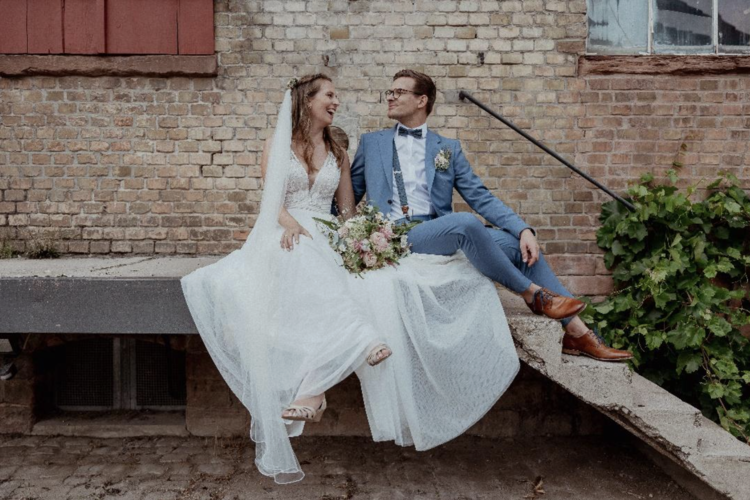Everyone has a history. That’s absolutely normal and understandable. Most self-help books tell you not to think about the past anymore because your past doesn’t even exist (it only exists in your head) – you’d better focus on what’s happening now and make plans for your future – this is obviously correct. Yet I would argue that your past is quite valuable: If you don’t learn the lessons from your past, certain issues will keep arising until the lesson is actually learned. So, when it comes to dating safety, there are many lessons to learn from your past, right?
- Should you disclose your history?
Jeanette is an attractive woman in her late 30s. She was used and abused by a guy when she was in her early 20s. She only told a few close friends and her therapists about that experience. Her family and her partner don’t know anything about that.
“If you don’t tell your family and your partner about that experience, what happened would hurt yourself,” says her mentor, “I know you don’t want to tell them about that because you don’t want to hurt them, but not telling them actually hurts you. Talking about that is good for your mental health and wellbeing.”
She was wondering whether her mentor was right or not, so she asked her psychologist, “My mentor says if I don’t tell my family and my partner about that experience, this is not good for me as it hurts me, so should I tell my family and my partner about what happened in my early 20s?”
“No, you shouldn’t,” says her psychologist, “By not telling your family and your partner about that negative experience, you are protecting your family and your partner, which means you are also protecting yourself. I know you want to trust your mentor, but he is not a psychologist. I’m a psychologist. I can confirm that you have made the right decision by not telling your family and your partner. I understand that you come from a relatively traditional culture, so you really shouldn’t tell your family and your partner that. If they know that, they might go crazy. Even in modern western culture, some families also can’t accept that. It depends on the family. This kind of experience is something that you should only talk about with your counsellor, not your family/partner.”
Clearly, oftentimes you should let your past stay in the past!

- When you can learn something from your past….
Although I have mentioned that oftentimes we should let the past remain in the past, it doesn’t mean we can’t learn a thing or two from the past. As a matter of fact, everyone would be well-advised to learn the lessons from the past.
For instance, Juliana has had 10 jobs. She is currently unemployed because she resigned from her 10th job. She is almost 40 years old, so having had 10 jobs is not unreasonable. Some jobs lasted for 5 or 6 years, whereas some jobs only lasted for a few weeks or a few months. Juliana is learning the lessons from her past, so that she can make future plans more wisely.
Juliana found her first job from a friend who started to treat her badly after giving her that job because that friend thought she did Juliana a big favor by giving her a job and was expecting everything from Juliana. That job lasted for five years; Juliana resigned because she was going overseas.
She found her second job by sending hundreds of resumes to employers by post – one employer hired her as a casual employee. She resigned from her second job because another employer offered her a full-time contract (her professor at university introduced her third employer to her).
Then the election changed the policy in the government; consequently, the third employer was unable to extend her contract. Fortunately, her mentor from her placement when she was studying at university introduced the 4th job to her. At that time, she still applied for a job on the internet because she didn’t want to miss out on that opportunity. She went to the job interview and impressed that employer who was offering her a casual contract. After the job interview, she sent an email to that employer and told them that she has accepted the job from her mentor as that’s a full-time contract, but she still would like to keep in touch with the employer that she met via the internet.
One year later, because the fourth job was too stressful and challenging, Juliana was thinking about leaving that organization. Suddenly, she received an email from the employer that she met through the internet – that employer was asking whether she is still interested in being their casual employee. Juliana said yes.
That’s how she got her fifth job.
Because her 5th job was just casual, Juliana used her other qualifications to land the 6th job and the 7th job (both were casual as well). As a result, she was extremely busy for three years. All of a sudden, the industry changed due to the new legislation, so she lost her 6th job and her 7th job (both organizations were shut down).
During the pandemic, she also lost her 5th job as that organization was shut down by COVID-19. Her fifth job lasted for more than six years.
The redundancy happened, so the 5th employer introduced a career counsellor to Juliana. Because of the career counsellor’s help, Juliana went to some job interviews and then landed her 8th job through a recruiter. After working in the 8th job for 10 weeks, she received a phone call from an employer who offered her an interview half a year ago and she was hired by the 9th employer.
Sadly, the 9th job didn’t work out – she was fired by the 9th employer because she didn’t have enough product knowledge in that particular industry.
Juliana is very resourceful; hence, she found her 10th job by applying for a relevant job online and got that job. Though she likes the nature of her 10th job, she couldn’t stand some people that she was working with. Thus, she resigned after working there for almost a year and a half.
After analyzing her employment history, Juliana has summarized some helpful insights: 1) high-quality jobs usually come from her mentors who actually want her to succeed; 2) finding a job by herself is better than asking someone else to introduce a job to her because she doesn’t want to owe anyone anything.
Although this section is about Juliana’s employment history, this idea also applies to relationships: if you summarize your relationship history, you will also get some insights into dating safety, so why not think about what your previous relationships have taught you?
“Please remember to learn something from your past so that you can have dating safety in the future.”







Leave A Comment